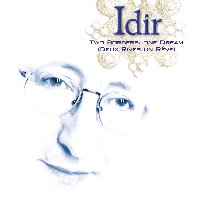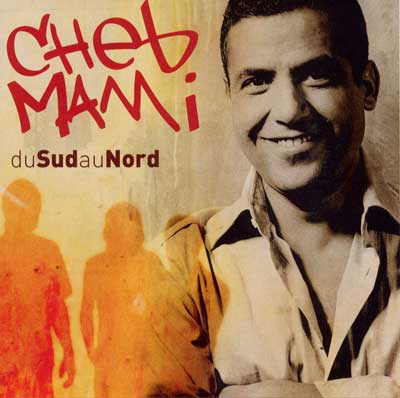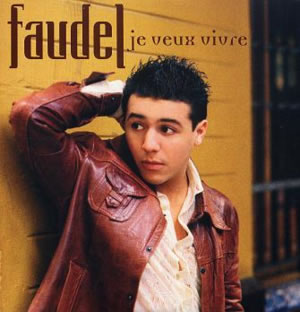
new souad massi 2006 new new new
faull album here

(Idir : A vava inouva)
here
(Idir : tagrawla)
here
(Idir: Aghrib)
here
(Idir : Cfigh)
here
Idir : Assandu )
here
(Idir : mughligh)
here
(Idir : zwit rwit )
here
(Idir :Azwaw )
here
(Idir : mughligh)
here
(Idir : tighri )
here
(Idir : Arrac Negh)
here
(isefra)
here
Idir was born in 1949 at Aït Lahcène a Berber village in Haute-Kabylia. IDIR's real name is Hamid Cheriet. This farmer's son started studying Geology and was destined for a career in the petroleum industry before his rise to stardom. Idir has been the ambassador of the Kabyle culture, especially the Kabyle music, with only his vocals and acoustic guitar. Idir has always used his status to claim his Berber (Amazigh) identity. His first album "A Vava inouva" came out in 1976, and the song "A Vava inouva" was translated into seven languages. After notable success, Idir wrote and recorded his second album "Ay Arrac Negh" (to our children) in 1979.
Idir restarted his career again with the release of a compilation in 1991 of seventeen songs from his first two albums "A Vava inouva" and "Ay Arrac Negh".
In 1993, a new album "les Chasseurs de lumières" (the hunters of lights) appeared on the Blue Silver label. "Les Chasseurs de lumières" is about (his) predilection, love, freedom and exile (which he had known since he moved to the Paris region in 1975). The acoustic guitar gives to the songs of this album a touch of modernism. We can also hear the voice of the Breton singer Alan Stivell in the duo "Isaltiyen". Idir performed his songs for the public at the Olympia in Paris on June 26th, 27th and 28th, 1993
Idir, a man of conviction has often participated in many concerts supporting different causes. For example, on June 22nd 1995 more than 6,000 people came to applaud the singer and his friend Khaled, initiators of the association "l'Algérie la vie"(Algeria my life) which invited them to a concert for peace freedom and tolerance. Idir also took part in the concert in memory of Matoub Lounes, the Kabyle singer who was assassinated in 1998.
Idir restarted his career once again with "Identities" in 1999, a tribute album which joined numerous artists together from Manu Chao to Dan Ar Braz without forgetting Maxime Le Forestier or Scotswoman Karen Matheson for a "A vava inouva 2", but also Gnawa Diffusion, Zebda, Gilles Servat, Geoffrey Oryema and the Orchestre National de Barbès.
Idir defended his national identity once again at "Le Zénith" in Paris in the spring of 2001 at the "21st berber's spring", a celebration of Berber culture. And on July 8th, he organised a special fund-raising concert to support the population in Kabylia when anti-government riots rocked the cradle of Berber culture in the summer of 2001. Idir was joined by a huge list of stars and thousands of Algerian and French fans who turned out to "Le Zénith" to support the population in Kabylia

here
deoui haly
here
Gnawa Diffusion – Fermez les stores
here
Gnawa diffusion
here
Gnawa diffusion : inaal ding dong
here
Gnawa diffusion : ouvrez les stores
here
awa Diffusion – Charlatown
here
small sample, including a live performance from 2005
here
Gnawa Diffusion – Live at Sfinks
here
Gnawa Diffusion - Baba Salem
here
Gnawa Diffusion – Ombre elle

At first, this algerian band of mixed nationality seems to fall into a common immigrant music nether zone. It's one step removed from the traditional gnawa music played by artists in Morocco -- keyboards and samples figure in along with flowing acoustic gimbri lines -- but equally far from the fully realized electric mix of modern world dance and pop elements that a group like Zebda offers. Lead singer Amaz isn't one of those spiraling Islamic vocal masters, which may account for Gnawa Diffusion aiming for the kind of link between reggae rhythms and gnawa melodies that Sargento Garcia is pursuing with salsa and ragamuffin. "Ouvrez les Stores" may be the clearest example -- it starts with pure rapid-fire dancehall toasting, shifts abruptly to long gimbri lines and Arabic vocals, and then trades back and forth between the two. But marimbas come out to play on "Madanga," "Kabariou" boasts 12-string acoustic slide guitar blues soloing over clattering hand percussion (always more Arabic than Jamaican), and a wah-wah electric slide guitar (?!) is featured down in the reggae rhythm of the title track, which is built around an Arabic keyboard melody. "Chara Allah" and "Gazal au Fond de la Nuit" are traditional Arabic, ska skank guitar meets the marimba on "Daka Barimba," and "Sabrina/Gas Naturel" alternates accordion and gimbri over reggae chop guitar. If this sounds haphazard and all over the map, not yet fully formed may be a better description for Bab el Oued Kingston. There seems to be an underlying method to the ideas in Gnawa Diffusion's music that a bit of judicious editing and focus would throw into sharper relief. ~ Don Snowden, All Music Guide

Cheb Mami & Nina Rocha Miranda – Moonrise
here
Parisien Du Nord
here
Azwaw
here
Baida
here
Bent Bareh
here
Bladi El Jazayer
here
Desert Rose
here
Hawalooh
here
Hay Woudi Wa Hay Galbi
here
Ma Ma
here
Le Fet Ghee Mneem
here
Mely Mely
here
2

Khalouni
here
Le Rai C`est Chic
here
Madanite cheb mami ft wyclif jean
here
Ma Vie 2 Fois
here
Ana Oualache
here
Rani Maeak El Yoom
here
Rim Lachoua
here
Tzazae
here
Viens Habibi
here
Ya Hamami
here
Cheb Mami's most notable attribute is his vocal range, often quoted as being three octaves. He sings in both French and Maghribi Arabic.
In 1982, the 16 year old adolescent sang on the "Alhan wa Chabab" radio show, a singing competition organised by Radio Télevision Algérienne. He sang "El Marsam" (The Sanctuary) a classic of Oranese music from the 1920’s. The audience was transfixed by the sheer emotion of his performance and by his sinuous vocal intonations which captured perfectly the flavour of the song’s title. The judges, who represented a government which refused to admit even the existence of raï, gave the first prize to a cover version of a hit by the famous Egyptian diva, Oum Kalthoum, but were forced to acknowledge the standing ovation Mami received by awarding him second prize.
Cheb Mami was spotted by Boualem, the producer of the Oran label, Disco Maghreb, and the cassette waltz began. From 1982 to 1985, Cheb Mami recorded about ten cassettes, whose production varied from 100,000 to 500,000 copies.
Cheb Mami made his first official public appearance at the First Oran Raï Festival in 1985, which marked the official recognition of the genre by the Algerian authorities.
As well as recording many straight raï songs, Cheb Mami has achieved crossover success with the hip-hop remix of his track "Parisien du Nord" on his album Meli Meli and also with the backing vocals on Sting's hit "Desert Rose".
When the Sting's album was released in 2000, the pair's duet, "Desert Rose", went rocketing to the top of singles charts around the world, fulfilling Mami's long-held dream of internationalising Raï sounds.
Perhaps Mami's most successful recording is the album Dellali, produced by former CHIC guitarist Nile Rodgers, which was released soon after his collaboration with Sting. Coincidentally, the album's lead single is entitled "Le Rai C'est CHIC" - although the word is used in the original French sense

Abadou
here
Beda
here
Anti
here
Dis Moi
here
Eray
here
Je Mavoyais Dega
here
Ma Vie
here
Miskeen
here
Nasel Fek
here
Omri
here
Daiman
here


















Comment